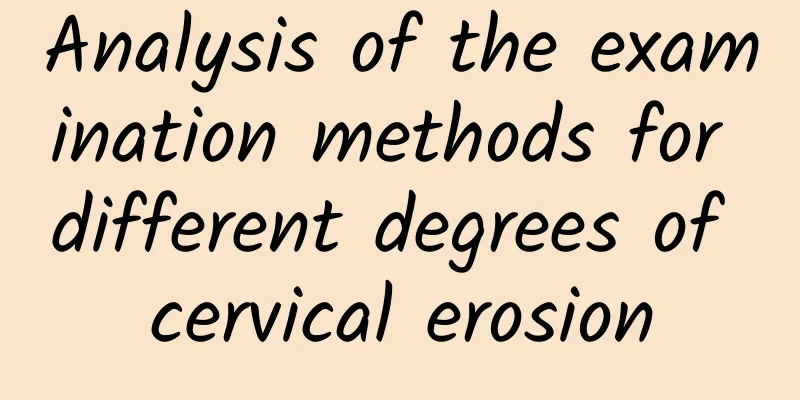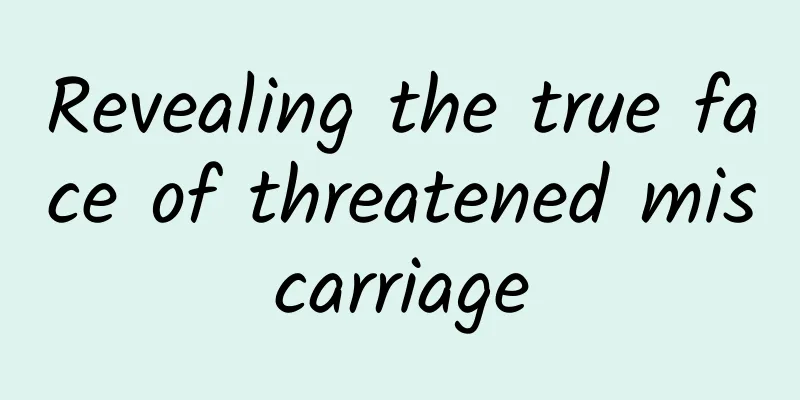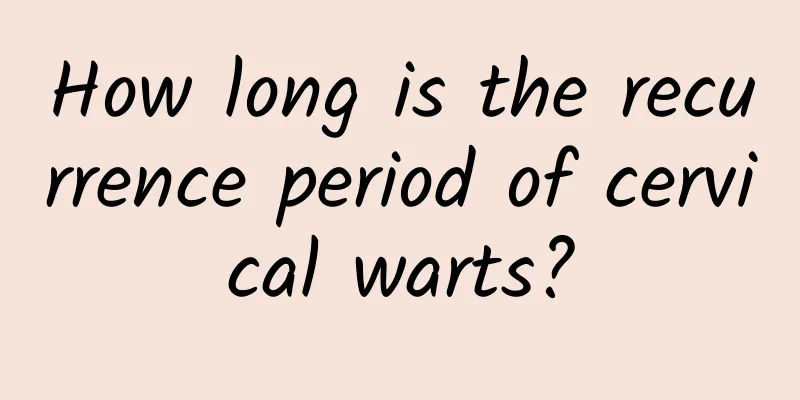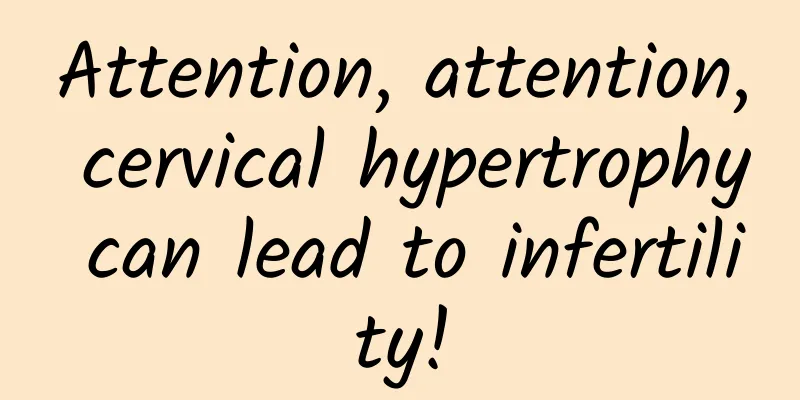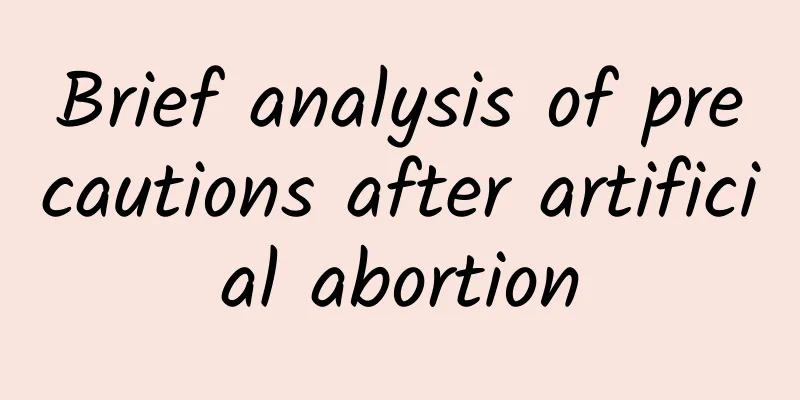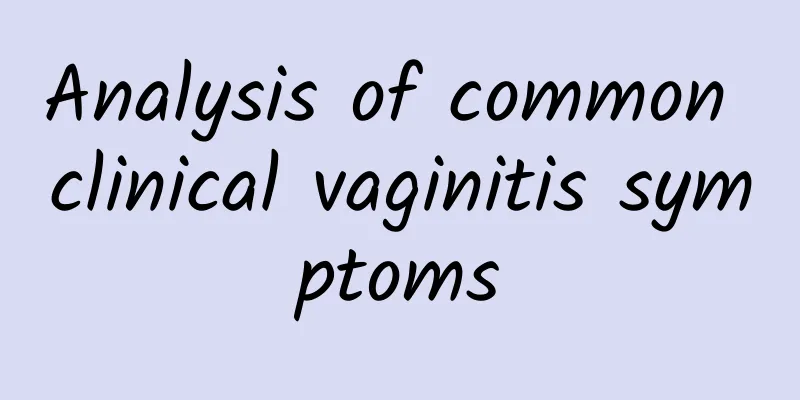What should I do if I have myometrial uterine fibroids? What is the treatment for myometrial uterine fibroids?
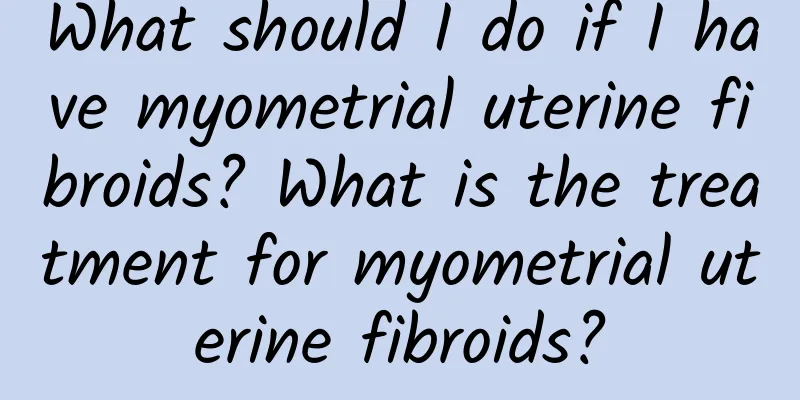
|
Among gynecological diseases, uterine fibroids are the most common benign tumors in women and one of the most common tumors in the human body. But even if it is benign, it is still a tumor, and we should know more about this disease and do a good job of prevention. So, what is the treatment for myometrial uterine fibroids? Myometrial uterine fibroids refers to the location where the fibroids grow, that is, myometrial uterine fibroids grow in the myometrium. The treatment of uterine fibroids depends on the patient's age, symptoms, location, size, growth rate, number, uterine deformation, whether to retain fertility and the patient's wishes. The treatment of myometrial uterine fibroids mainly includes conservative treatment, surgical treatment and minimally invasive treatment. 1. Conservative treatment Conservative treatment of uterine fibroids must meet the following conditions: first, the tumor size does not exceed 6 weeks; second, the patient is postmenopausal and asymptomatic; third, the patient is near postmenopausal and can reduce bleeding through non-surgical treatment; fourth, the patient cannot tolerate surgery. Conservative treatment mainly includes expected treatment and drug treatment. 1. Expected treatment. Applicable population: patients aged 40-50 years old who have begun menopause and have no obvious clinical symptoms such as bleeding and pain. 2. Drug treatment. Advantages: The current conservative treatment is mainly drug treatment, which can avoid the pain and sequelae caused by surgery. If drug treatment is not ideal, then consider minimally invasive or surgical treatment. 2. Applicable groups for surgical treatment: The size of the fibroid is equivalent to a uterine pregnancy of more than one and a half months. In addition, if the fibroid grows rapidly, the tumor protrudes from the abdominal cavity and has a tendency to twist, it should also be surgically removed. Of course, when deciding on surgery, other indications should also be considered, such as severe anemia, heart disease, and general condition. 3. Advantages of minimally invasive coagulation knife technology: preservation of the uterus, no bleeding, less pain, no hospitalization, and quick recovery. Disadvantages: It is helpless for people with pedunculated serosa-derived fibroids, fibroids with malignant changes, and acute and chronic genital inflammation. Surgery can only be performed after the inflammation is controlled. |
<<: How to treat uterine fibroids? What are the treatments for uterine fibroids?
>>: What are the treatments for uterine fibroids? Dietary conditioning methods for uterine fibroids
Recommend
Why do high GL foods make you fat? The key factor is...
High GL diet = protruding belly! 1. High GL foods...
What are the dangers of vulvar leukoplakia
What are the hazards of vulvar leukoplakia? Since...
What does a positive ovulation test before menstruation mean?
Ovulation test strips can only show correct resul...
What are the folk remedies for pelvic effusion?
What are some folk remedies for pelvic effusion? ...
How to treat recurrent cervicitis
Recurrent cervicitis can be treated by correctly ...
Talk to the experts about the symptoms of ectopic pregnancy
Ectopic pregnancy is a common disease among women...
Crazy "Coke Coffee" Doubles Your Weight Loss? Nutritionist: Be careful about your sugar cravings, the more you drink, the fatter you get~
The popular "Cola Coffee" from Japan wa...
Menstrual disorders are prone to recurrence due to simple regulation, and syndrome differentiation and treatment are the fundamental
The most annoying problem for women during menstr...
What to do if you have cervical erosion and stomach pain? 3 ways to check for cervical erosion and stomach pain
First of all, cervical erosion does not cause abd...
What are the symptoms of uterine fibroids? Does it affect pregnancy?
Uterine fibroids are a serious uterine disease. T...
Not suitable to move around? 10 flywheel advantages that pregnant women must know
During pregnancy, pregnant mothers are often relu...
Do yoga to control your weight! Dilate the stomach wall half an hour before eating
Recently, Prince William and Prince Harry of the ...
Can people with uterine fibroids take vitamin C?
Can people with uterine fibroids take vitamin C? ...
What are the causes of cervical erosion in women? 4 causes of cervical erosion
Cervical erosion is a disease that troubles many ...
Under what circumstances does chronic cervicitis occur? What are the prevention methods for chronic cervicitis?
When women reach a certain stage, they will get m...

